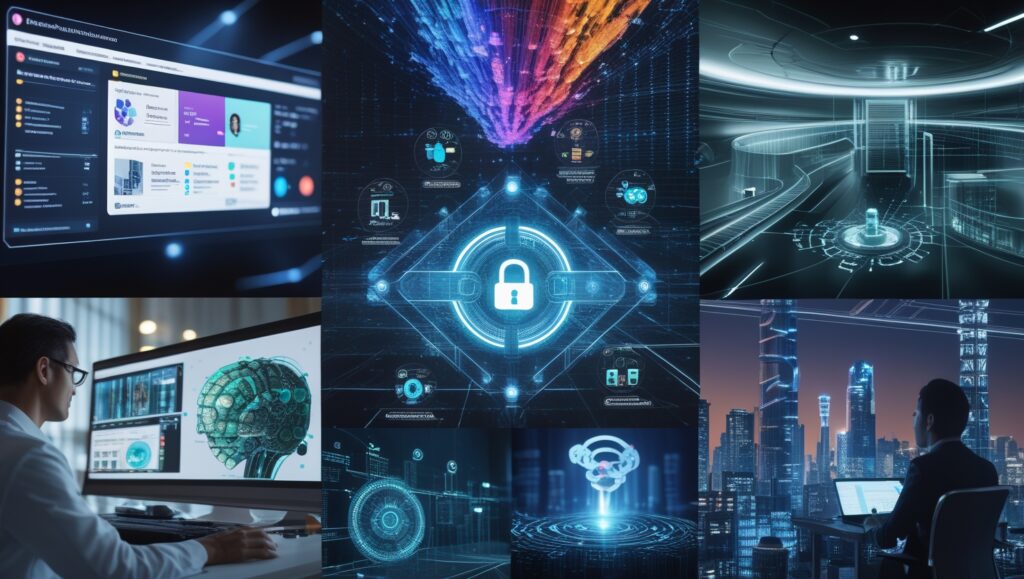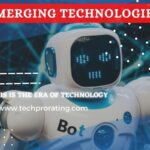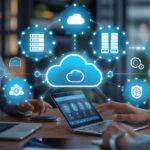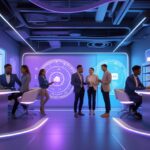Latest AI Trends for 2025: Artificial Intelligence (AI) has been one of the most transformative technologies of the 21st century, and its evolution shows no signs of slowing down. As we approach 2025, the AI landscape is poised to undergo significant advancements that will reshape industries, redefine human-machine interactions, and unlock new possibilities. In this article, we’ll explore the latest AI trends expected to dominate in 2025, their implications, and how they align with Google’s policies and authority in the tech world.
1. AI-Powered Personalization at Scale
One of the most prominent AI trends for 2025 is hyper-personalization. AI algorithms are becoming increasingly sophisticated, enabling businesses to deliver highly tailored experiences to users. From personalized marketing campaigns to customized product recommendations, AI will leverage data analytics and machine learning to understand individual preferences better than ever before.
Google has long been a pioneer in personalization, with its search algorithms and ad platforms using AI to deliver relevant results. By 2025, we can expect even more advanced personalization techniques, such as AI-driven content creation that adapts to user behavior in real-time. This trend aligns with Google’s emphasis on user-centric experiences and its commitment to providing valuable, relevant content.

2. Ethical AI and Responsible Innovation
As AI becomes more pervasive, ethical considerations are taking center stage. By 2025, the focus on ethical AI will intensify, with organizations prioritizing transparency, fairness, and accountability in AI systems. Google has been a leader in this space, advocating for responsible AI development through initiatives like its AI Principles, which emphasize avoiding bias, ensuring safety, and being socially beneficial.
In 2025, we can expect stricter regulations and industry standards around AI ethics. Companies will invest in tools and frameworks to detect and mitigate biases in AI models, ensuring that AI systems are fair and inclusive. This trend is not only crucial for building trust but also aligns with Google’s authority as a responsible tech giant.
3. AI in Healthcare: Revolutionizing Diagnosis and Treatment
The healthcare industry is set to benefit immensely from AI advancements by 2025. AI-powered diagnostic tools, predictive analytics, and personalized treatment plans will become mainstream, improving patient outcomes and reducing healthcare costs. For instance, AI algorithms can analyze medical images with remarkable accuracy, aiding in early detection of diseases like cancer.
Google’s DeepMind has already made strides in this area, with its AI systems demonstrating the ability to predict patient outcomes and assist in complex surgeries. By 2025, we can expect even more groundbreaking applications, such as AI-driven drug discovery and virtual health assistants that provide 24/7 support to patients.
4. Generative AI and Creative Industries
Generative AI, which includes technologies like OpenAI’s GPT and DALL-E, is revolutionizing creative industries. By 2025, generative AI will be more advanced, enabling the creation of high-quality content, including text, images, music, and even videos. This technology will empower creators, streamline content production, and open up new possibilities for innovation.
Google has been actively exploring generative AI, with projects like Bard and its integration into Google Workspace. As this trend grows, businesses will leverage generative AI to automate content creation, design, and marketing, aligning with Google’s mission to organize the world’s information and make it universally accessible.
5. AI-Driven Automation in the Workplace
Automation powered by AI will continue to transform the workplace by 2025. From routine administrative tasks to complex decision-making processes, AI will enhance productivity and efficiency across industries. Robotic Process Automation (RPA) combined with AI will enable businesses to automate workflows, reduce errors, and free up human workers for more strategic roles.
Google’s cloud-based AI tools, such as Google Cloud AI, are already helping businesses automate operations and gain insights from data. By 2025, we can expect even more sophisticated AI-driven automation solutions that integrate seamlessly with existing systems, further solidifying Google’s position as a leader in AI innovation.
6. AI and the Internet of Things (IoT)
The convergence of AI and IoT will be a game-changer by 2025. AI-powered IoT devices will become smarter, more intuitive, and capable of making real-time decisions without human intervention. For example, smart homes will use AI to optimize energy consumption, while smart cities will leverage AI to manage traffic and reduce pollution.
Google’s Nest products and its investments in IoT technologies highlight its commitment to this trend. By 2025, AI-driven IoT ecosystems will be more interconnected, creating a seamless experience for users and driving innovation across industries.
7. AI in Education: Personalized Learning Experiences
Education is another sector that will see significant AI-driven transformation by 2025. AI-powered platforms will offer personalized learning experiences, adapting to each student’s pace, strengths, and weaknesses. Virtual tutors and AI-driven assessment tools will provide real-time feedback, making education more accessible and effective.
Google for Education has already introduced AI tools like Google Classroom and AI-based features in Google Workspace. By 2025, these tools will become even more advanced, enabling educators to deliver tailored learning experiences and improve student outcomes.
8. Quantum Computing and AI
Quantum computing, though still in its early stages, holds immense potential for AI. By 2025, we can expect significant progress in quantum computing, which will enhance AI’s capabilities by solving complex problems that are currently beyond the reach of classical computers. This synergy will accelerate advancements in fields like cryptography, material science, and optimization.
Google’s Quantum AI lab is at the forefront of this research, with its Sycamore processor achieving quantum supremacy in 2019. As quantum computing matures, it will unlock new possibilities for AI, further cementing Google’s authority in the tech industry.
9. AI for Sustainability and Climate Change
Sustainability will be a key focus area for AI in 2025. AI-powered solutions will play a crucial role in addressing climate change, optimizing resource usage, and promoting sustainable practices. For instance, AI can analyze environmental data to predict natural disasters, optimize energy grids, and reduce carbon footprints.
Google has been a leader in sustainability, with initiatives like Google Earth Engine and its commitment to carbon neutrality. By 2025, AI will be integral to global efforts to combat climate change, aligning with Google’s mission to create a more sustainable future.
10. AI-Powered Cybersecurity
As cyber threats become more sophisticated, AI will be essential for enhancing cybersecurity. By 2025, AI-driven security systems will be capable of detecting and mitigating threats in real-time, protecting sensitive data and ensuring the integrity of digital systems. AI will also play a key role in identifying vulnerabilities and predicting potential attacks.
Google’s expertise in cybersecurity, combined with its AI capabilities, positions it as a leader in this space. By 2025, AI-powered cybersecurity solutions will be more robust, providing businesses and individuals with greater protection against evolving threats.
Conclusion
The latest AI trends for 2025 promise to revolutionize industries, enhance human capabilities, and address some of the world’s most pressing challenges. From personalized experiences and ethical AI to advancements in healthcare and sustainability, the future of AI is both exciting and transformative.
Google’s leadership in AI innovation, coupled with its commitment to ethical practices and user-centric solutions, ensures that it will remain at the forefront of these trends. As we move closer to 2025, businesses and individuals alike must stay informed about these developments and embrace the opportunities they present.











